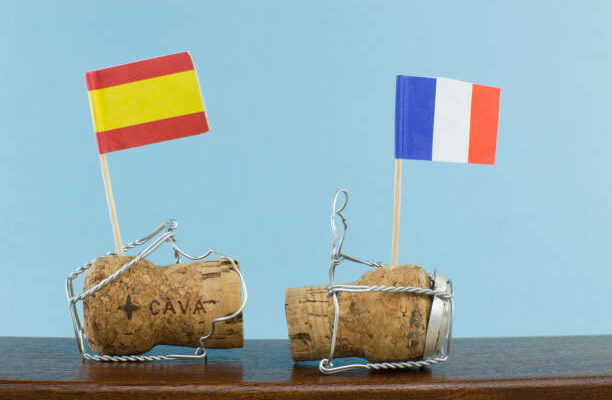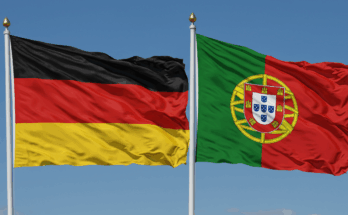The relationship between Spain and France is one of the most complex yet enduring in European history. Geographically connected by the Pyrenees Mountains — with only a small break due to Andorra — the two nations have shared centuries of intertwined political, cultural, economic, and sporting ties. From historical conflicts and diplomatic alliances to modern-day cooperation and friendly rivalries on the football pitch, Spain and France continue to shape each other’s destinies in profound ways.
This article explores the multifaceted relationship between these two European neighbors, focusing on their historical interactions , economic and trade relations , and culminating with a look at the high-stakes football match played on June 5, 2025, which ended in a dramatic 5-4 victory for Spain over France.
Historical Ties: From Rivalry to Cooperation
The history between Spain and France is marked by alternating periods of rivalry and alliance. During the early 1800s, both countries were deeply involved in the Napoleonic Wars, with France under Napoleon Bonaparte exerting influence over much of Europe, including parts of Spain. The Peninsular War (1807–1814) was a significant conflict where French forces faced fierce resistance from Spanish insurgents and British troops, marking one of the bloodiest chapters in their shared past.
Despite these turbulent times, diplomacy often found a way to bridge differences. Over time, both nations recognized the benefits of cooperation, especially as European integration gained momentum after World War II. Today, Spain and France are key members of the European Union and NATO, working together on issues ranging from border security to climate change.
In January 2023, the two countries solidified their partnership by signing the Treaty of Friendship and Cooperation in Barcelona, signaling a new era of collaboration in defense, energy, culture, and education. This agreement reflects the maturity of their bilateral relations and underscores their mutual commitment to peace and prosperity in Europe.
Economic and Trade Relations: A Thriving Partnership
Spain and France share one of the most dynamic economic relationships in the EU. As neighboring countries with complementary economies, they have developed deep and fluid trade links that benefit both nations. According to recent data, France is among Spain’s top trading partners , and vice versa, with bilateral trade growing steadily over the past five years.
French companies have long invested in sectors such as infrastructure, banking, and tourism in Spain, while Spanish firms have expanded into France, particularly in renewable energy, agriculture, and logistics. This interdependence has led to increased job creation, innovation, and regional development along the shared border.
Trade relations between the two countries also extend beyond goods to include services, intellectual property, and digital commerce. The seamless movement of people and goods across their common border facilitates cross-border business activities, making it easier for SMEs and large corporations alike to operate in both markets.
Moreover, as part of the Schengen Area, citizens of both countries enjoy visa-free travel, further strengthening personal and professional connections. Whether it’s students studying abroad, entrepreneurs launching startups, or families visiting relatives, the ease of mobility reinforces the social fabric of this special relationship.
Cultural Exchanges and Shared Heritage
Beyond economics and politics, Spain and France share a rich cultural heritage. Their mutual appreciation for art, literature, cuisine, and music has fostered strong people-to-people ties. Cities like Paris and Madrid have long been cultural hubs that attract artists, writers, and thinkers from both sides of the border.
The Basque region, straddling the Franco-Spanish border, exemplifies how local identities can thrive within a broader national framework. Similarly, the Catalan language and culture in northeastern Spain have historical and linguistic ties with southern France, highlighting the deep-rooted connections between communities.
Tourism plays a major role in reinforcing this cultural bond. Millions of French tourists visit Spain annually, drawn to its beaches, festivals, and historic cities. Likewise, Spaniards frequently travel to France for skiing in the Alps, exploring the vineyards of Bordeaux, or enjoying the cosmopolitan life of Paris.
These exchanges not only boost local economies but also promote understanding and goodwill between the two peoples.
Football Rivalry: A Modern Expression of National Pride
While Spain and France have built a strong foundation of cooperation, their football rivalry remains one of the fiercest in international sport. Matches between the two national teams are always eagerly anticipated, combining high-level competition with historical intrigue.
On June 5, 2025 , Spain and France met in the UEFA Nations League semi-final at Stade de France in Saint-Denis. The match was not just a test of skill but also a statement of intent ahead of upcoming World Cup qualifiers and Euro 2028 preparations.
Match Summary – June 5, 2025: Spain 5–4 France
From the opening whistle, Spain showcased their trademark possession-based style, dominating the midfield through Rodri and Pedri. Nico Williams opened the scoring in the 22nd minute, followed quickly by Mikel Merino, giving Spain a commanding 2-0 lead by the 25th minute.
Lamine Yamal, the young Barcelona sensation, stepped up to convert a penalty in the 54th minute, extending Spain’s advantage to 3-0. Just a minute later, Pedri added the fourth goal, seemingly putting Spain firmly in control.
However, France mounted a dramatic comeback. Kylian Mbappé converted a penalty in the 59th minute to get France on the scoreboard, sparking a wave of momentum. Despite Spain’s attempts to maintain control, France scored three quick goals, reducing the deficit to 4-3 and setting the stage for a thrilling finale.
In a nail-biting finish, Spain regained composure and sealed the victory with a late goal, bringing the final score to 5-4 in favor of Spain.
Key performances included:
- Lamine Yamal (Spain): Starlet delivered a composed penalty and showed flashes of brilliance.
- Rodri Hernández (Spain): Anchored the midfield and controlled the tempo throughout.
- Kylian Mbappé (France): Scored a crucial penalty and led the French fightback.
- Mike Maignan (France): Made several important saves to keep France in the game.
The match was widely praised for its intensity, technical quality, and entertainment value, further cementing the legacy of this storied football rivalry.
Conclusion: A Relationship Rooted in Respect and Rivalry
The relationship between Spain and France is a testament to how geography, history, and shared values can forge a unique bond. From historical conflicts to modern-day cooperation, the two nations have evolved into close allies, bound by strong economic ties, cultural exchanges, and a passionate football rivalry.
Their trade relations continue to grow, supported by favorable policies and open borders, ensuring mutual prosperity. At the same time, their shared history reminds them of the importance of diplomacy and unity in an ever-changing world.
And when they meet on the football field, whether in a Nations League semi-final or a World Cup encounter, fans are treated to a spectacle that embodies the spirit of competition and camaraderie.
As Spain celebrated a dramatic 5-4 win over France on June 5, 2025, it served as a reminder that while the rivalry may be intense, the respect between these two nations runs deep — and their shared future looks brighter than ever.



